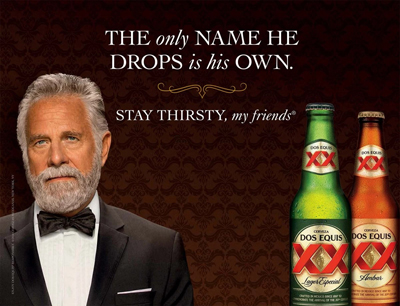Ron Amram, Vice President of Media at Heineken USA, is chair of the judging panel for the Effective use of partnerships and sponsorships in the Warc Media Awards. A serially decorated marketer, Amram has led the Heineken team to 20 Cannes Lions awards.
Warc's Lucy Aitken spoke to him about how sponsorship goes beyond a media buy, leveraging passion points, and getting his brand into 'non-American football.'
How has the role of comms planning – and how it works with creative planning - changed?
The complexity of the media world has changed and we need to understand both.
Creative planning is the search for insight to make brand communication more powerful and intimate for the consumer. It's a nugget or a serious insight that makes communication more effective. The Most Interesting Man In The World campaign for Dos Equis is an obvious example: it came from the insight that guys need to feel interesting around their friends.
The difference in comms planning is that it's more about the context around your communication to make it more effective. Lab testing of an ad is never going to be the same as real communication: what time of day it is, who is seeing it and where, what people are doing while they're seeing it – these are incredibly important factors that drive effectiveness.

How can brands get the most from their partnerships and sponsorships?
You have to believe that sponsorships are worth the extra effort. It's not just a media deal; a sponsorship entails a significant number of consumer platforms. It's part of advertising and media, video assets, social media platforms, packaging, in-store and retail. It needs to go deeper because it's not just a media buy - you need to get everyone sold in.
What is your organisation's content strategy?
We don't have a singular content strategy - it flows out of our connections strategy which is all about finding those precision marketing moments where we can connect on a passion point.
Who makes the decision to use an emerging platform, you and the team Heineken or your agencies?
Both. We look for good ideas from all directions, whether it's a brand person, someone from the media team, brand agency, corporate relations, a PR or an event agency. We like to come up with a process for innovation but ideas can come from anywhere and the criteria for assessing them are very simple. Does it allow us to target people of legal drinking age? Is a platform where we can resonate? Does it reach people at scale?
What will future media agencies look like?
Right now they are pivoting into data and having real platform expertise. That doesn't change the fact that they still need people who can negotiate well. Good agencies also have a strong nose for creative ideas, data and tech that they're still developing.
Can you cite an example of how data helped you or your agency uncover a surprising insight that informed future comms planning?
Football is the fastest growing sport in the US and is an incredibly powerful passion point. We used data to find the right sports platforms and also to convince people that these were the right ones for Heineken. For instance, there was a lot of evidence indicating that, despite not being an official World Cup sponsor, Heineken was still one of the most talked about beer brands around that event. That's changed our marketing structure, our league sponsorship and local team deals. So now a lot of what we do is focused around soccer – or non-American football as we call it!
Warc's Media Awards recognise comms planning which has made a significant impact on business results. Free to enter, there's a $40K prize fund. To enter your work, click here. Deadline for entries: 19 September.

